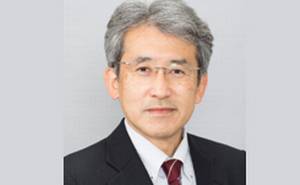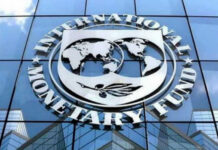The Japan development agency, JICA, is ready to talk again about the Padma bridge project if the government wants, its new chief for Bangladesh says.
The new Chief Representative Mikio Hataeda told bdnews24.com that they were closely watching the progress of the project as they understood its ‘importance’.
“Once the government likes to talk about the project then I am always ready to talk,” he said on the sidelines of a JICA reception on Saturday.
JICA Dhaka Office bade farewell to its outgoing chief Takao Toda and welcomed Hataeda at a reception on Saturday where Prime Minister’s adviser Gowher Rizvi and senior government officials were also present.
The Japan International Cooperation Agency (JICA) pulled out of the Padma bridge project in last February after the government retracted its request for funding to the World Bank.
The World Bank was the lead donor of the $2.9 billion project linking the south-west to northern and eastern regions of Bangladesh, promising $1.2 billion in loans.
The JICA had committed $400 million while the Asian Development Bank had pledged to inject $610 million and Jeddah-based Islamic Development Bank $140 million.
The rest was supposed to come from the Bangladesh government.
The government withdrew the request after a year-long tussle with the Washington-based lender over suspected corruption in the project.
The global lender initially suspended the funding suspecting corruption and launched investigations.
Finally, the Bangladesh government declared that it would implement the biggest ever infrastructure project on its own. But experts remained sceptical.
Chief Representative Hataeda was the Deputy Director General of South Asia Department at JICA headquarters in Tokyo before coming to Dhaka.
He said he knew about the project as he “had been engaged” with the Padma project from the head office.
The project was ‘a priority’ for the Asian Highway envisaged in the region, he said, and that “it is indispensable to your economy”.
“So we are interested in that project,” he said, declining to make further details.
Prime Minister’s adviser Rizvi thanked the outgoing JICA chief Takao Toda for his support to Bangladesh during the fight against the World Bank’s decision.
“We (government with JICA) failed to convince the other partners,” he said but added the project would be implemented.
Toda joined Dhaka office in June 2009 and would leave Dhaka on Jan 24 for his new assignment at the headquarters in Tokyo.
He will join the human resource department and told bdnews24.com that he would lead the department as its director general sometime later.
New chief Hataeda started his career with the development agency with the then Overseas Economic Cooperation Fund (OECF) in 1988 dealing with infrastructure projects in the Philippines and Papua New Guinea.
A Bachelor in Law and Masters in Public Policy, he started his career in the South Asia region when he was dispatched to OECF India Office in 1994, taking charge of project funding and supervision.
In his latest South Asia desk at Tokyo, he oversaw the whole region particularly Bangladesh, Bhutan, India and Nepal.
He told bdnews24.com that he would look for foreign investment for Bangladesh and for that he said he would focus on “basic infrastructure development”, needed to create investment enabling environment.

Hataeda said with the rapid economic growth, Bangladesh was on the track of taking off. “Your country should invite foreign investment now.”
During his speech at the reception, he said he would keep “striving to assist the people of Bangladesh in exploring their enormous untapped potential” and thereby strengthening the two countries ties further.
Japan is Bangladesh’s biggest bilateral donor with assistance handed out by its development arm, the JICA.
According to the finance ministry, Japan has committed $11 billion in loans since 1971, and nearly $7 billion had been utilised until last year.
A major project, Mass Rapid Transit (MRT), is currently underway on Japan’s $2.45 billion fund promise.
Source: bdnews24










